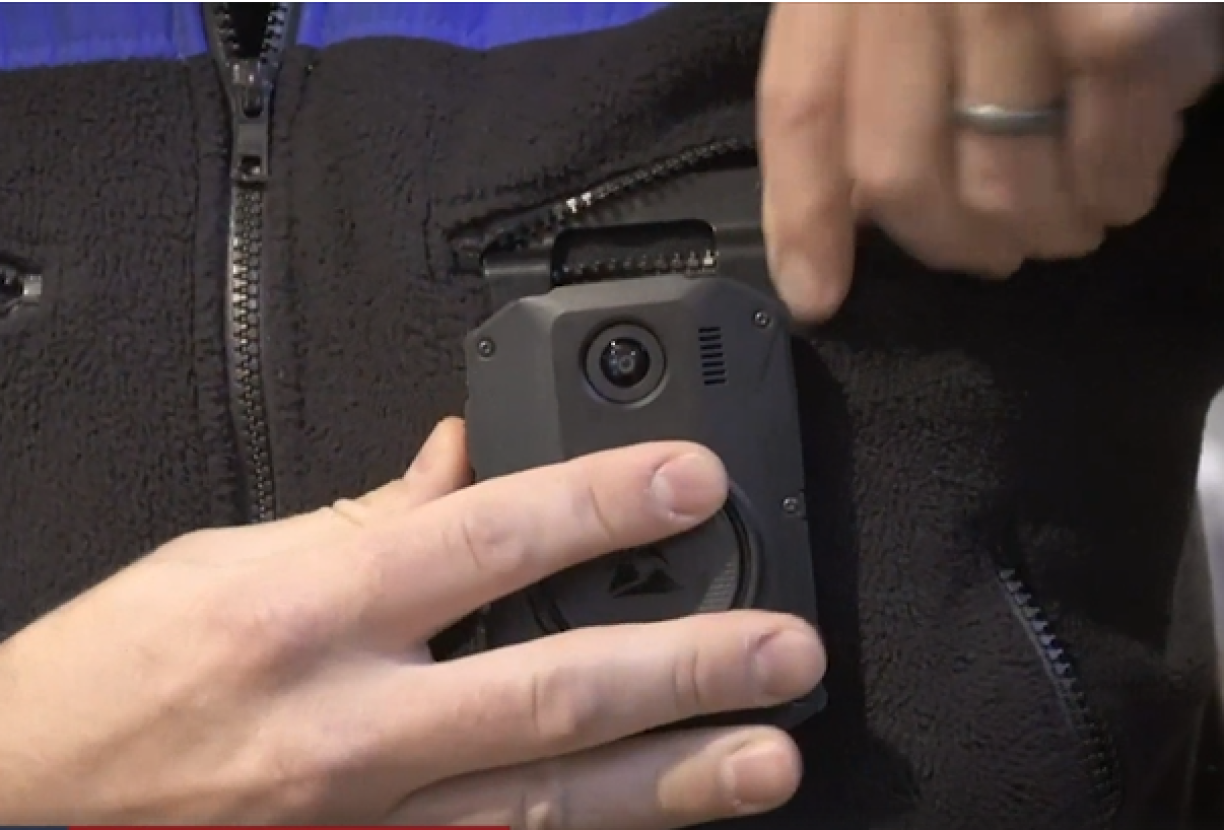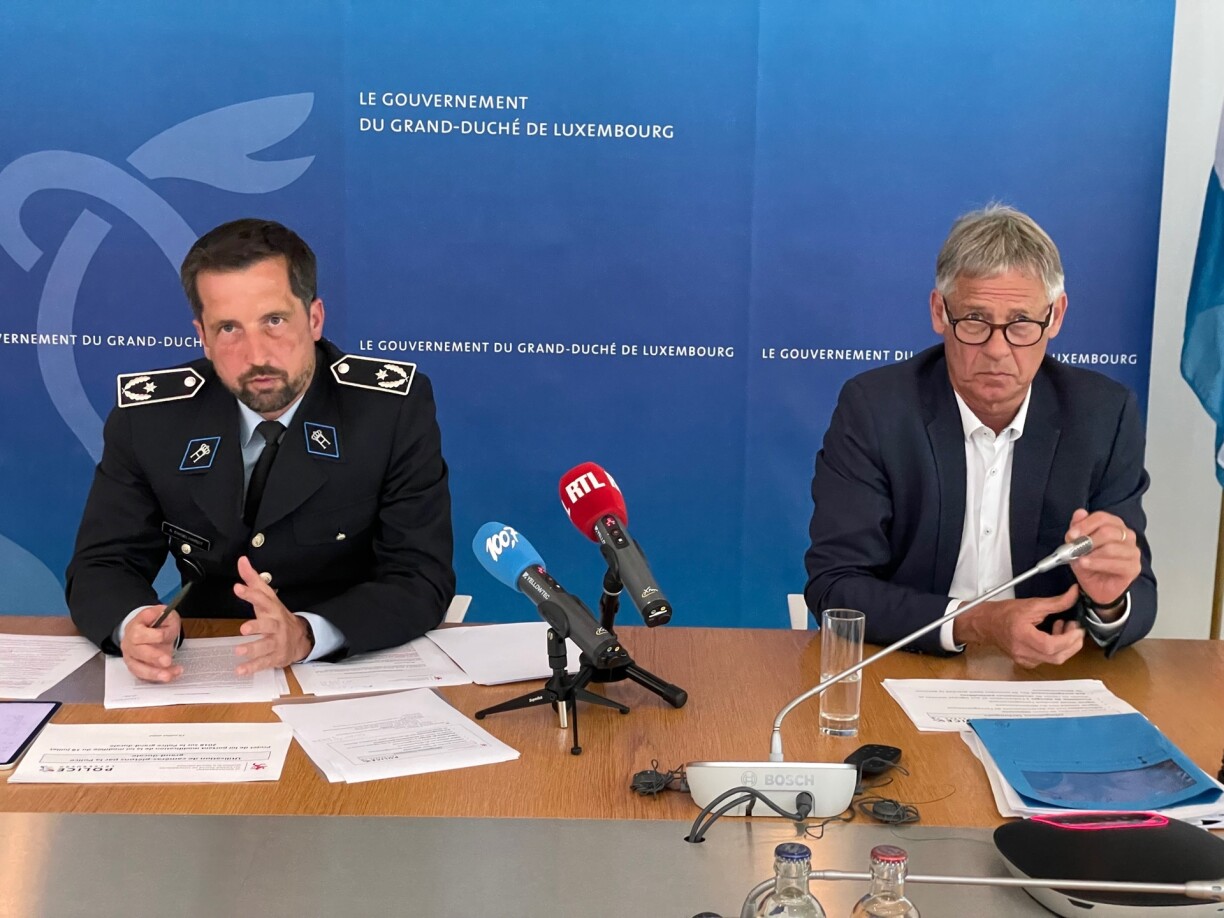
Details of the new bill were presented during a press conference on Tuesday. Henri Kox said other countries had made positive experiences with bodycams, which often had a de-escalating effect on situations involving police. This is why Luxembourg has decided to immediately employ body cams in a generalised fashion.
“It is primarily meant for administrative police. This means uniformed officers will be wearing them on the job. This can be during demonstrations, when they are patrolling, but also in enclosed spaces, for instance when they are called for domestic violence incidents.”
The camera will be switched on in case of danger to the officers. Alain Engelhart, who is responsible for introducing the cameras within the police, explains how they work.
“The camera is constantly filming, but the footage is overwritten every 30 seconds, unless the recording is activated.”
If an event is recorded that has no legal consequences, the footage is deleted automatically after 28 days. Manipulation of the data is not possible before this date. There are still open questions about who can access the data, which is saved on a server.
“If an officer has to write a report on an incident, they have the right to consult the footage recorded by their camera. This can help them write their report. But they can also copy film sequences which can for instance be passed on to the judge.”
Other police officers can also get access to the material, provided they have an authorisation from the police director general.
Details on the camera model, whether they could be auto-activated if an officer pulls a gun, and how officers will be trained, are not available at this date. The new bill has to be voted before it can be implemented.
Pascal Riquier, president of the police union SNPGL, says the bodycams are an important tool and welcomes them. He is less pleased that the union found out about the new bill from the press. The SNPGL were involved in the draft bill, he says, but excluded in the development of the bill. According to him, the training aspect is still too unclear at this point.
“It is important for us that police officers be properly trained before they start using such a bodycam. Both in theory and in practice, as well as in the tactical aspects. They need to play through situations of stress, so they remember to turn on the camera. And they need to know when they should turn it on.”
Pascal Riquier does not agree with the director general giving approval for police officers to access the material. During the draft bill stage, the SNPGL had written an opinion requesting that judicial authorities should get access to the footage, but only during judicial procedures.
